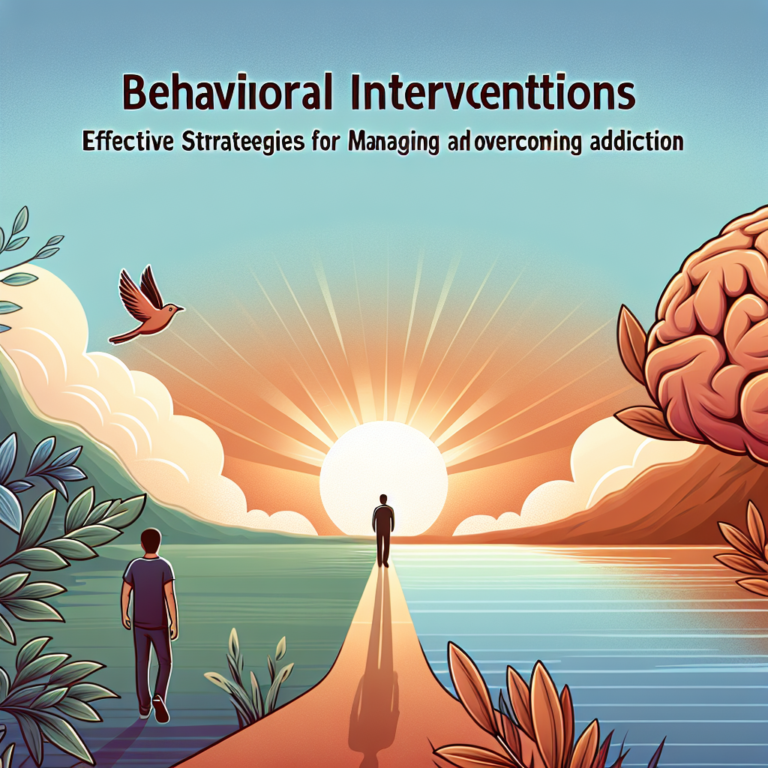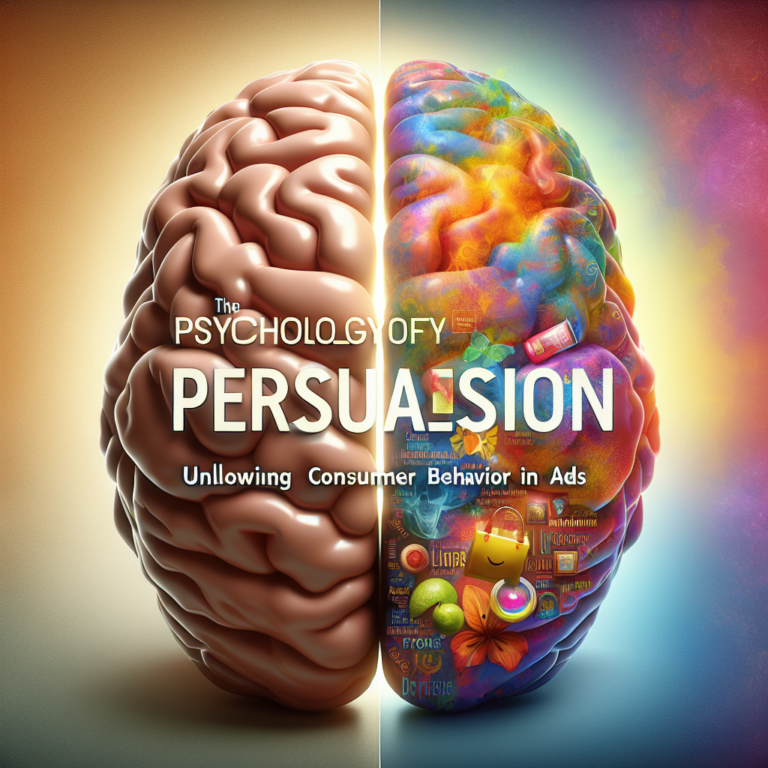
The Ultimate Habit-Forming Formula: Insights from Behavioral Psychology to Transform Your Life
Introduction
In a world that thrives on rapid change and constant motion, establishing and maintaining positive habits can feel like an uphill battle. Have you ever wondered why some people seem to effortlessly integrate healthy routines into their daily lives while others struggle to make even the smallest changes? The answer lies in understanding the intricacies of human behavior—specifically, in leveraging insights from behavioral psychology. This article elucidates The Habit-Forming Formula: Insights from Behavioral Psychology to Transform Your Life, providing you with a road map to rewrite your daily narrative through the power of habits.
Laser-focused habits are not just beneficial; they are transformational. They allow us to unlock our true potential and lead a more fulfilling life. By embracing proven strategies backed by scientific research, you can set off on a journey to personal enhancement that not only benefits you but also influences those around you.
Let’s delve into this compelling subject and unlock the secret to lifelong habits that can fundamentally change your life.
The Psychology of Habit Formation
What Are Habits?
Before diving deeper into The Habit-Forming Formula: Insights from Behavioral Psychology to Transform Your Life, it’s vital to grasp what habits are. In essence, habits are behaviors we perform automatically, often without conscious thought. They form through repetition and reinforcement, gradually becoming part of our daily lives.
- Cue: The trigger that initiates the habit.
- Routine: The actual behavior or action.
- Reward: The benefit that reinforces the habit.
This trio forms the backbone of habit development and is essential for understanding how to craft your own positive routines.
The Science Behind Habit Formation
Researchers such as Charles Duhigg—author of The Power of Habit—expound on the science behind habit loops. His model emphasizes the “habit loop” concept, where a cue leads to a routine, and is followed by a reward. This framework can be leveraged to create new habits or replace negative ones.
Case Study: Smoking Cessation
Consider the example of smokers attempting to quit. A cue might be stress, triggering the routine of smoking, with the reward being the temporary relief from anxiety. To transform their behavior, they need to change their routine — perhaps substituting smoking with a deep-breathing exercise that still provides a reward in the form of stress relief. This change underscores the potency of The Habit-Forming Formula: Insights from Behavioral Psychology to Transform Your Life.
The Role of Willpower and Environment
Willpower is often cited as a crucial factor in habit formation, but it’s not the only player on the field. Your environment can significantly influence your habits. Behavioral psychologists argue that making small adjustments to your surroundings can yield impactful results.
For instance, placing healthy snacks within easy reach while hiding junk food can make it simpler to choose healthful eating options. Understanding the role of both willpower and environment enables individuals to create conditions conducive to lasting change.
Crafting Your Habit-Forming Strategy
Step 1: Define Your Goals
To harness The Habit-Forming Formula: Insights from Behavioral Psychology to Transform Your Life, begin with clarity in your objectives. What habits do you want to form? Whether it’s exercising daily, reading more, or improving your diet, defining clear, measurable goals is essential.
SMART Goals Framework
- Specific: Clearly define the habit.
- Measurable: Quantify the progress.
- Achievable: Ensure the goal is realistic.
- Relevant: Align the goal with broader life objectives.
- Time-bound: Set a deadline for achieving the goal.
Step 2: Identify Your Cue
Recognize the cues that can trigger the new behavior you wish to adopt. Understanding the contexts where your habits will flourish allows you to prepare for and reinforce them.
Table: Common Cues and Associated Habits
| Cue | Habit |
|---|---|
| Morning alarm | Morning workout |
| Work break | Ten-minute meditation |
| Feeling stressed | Journaling |
Step 3: Design Your Routine
Routines are where the magic happens! Establish a straightforward and enjoyable process for achieving your goals. If the routine is enjoyable and feels rewarding, you’ll be more likely to stick to it.
Case Study: The 5 AM Club
The book The 5 AM Club by Robin Sharma highlights the transformative impact of waking up early to engage in productive habits. By establishing a morning routine that incorporates exercise, reflection, and planning, individuals are able to promote mental clarity and set a positive tone for the day.
Step 4: Implement the Reward System
Rewards reinforce the behavior, thereby making its recurrence more likely. As you form new habits, remember to celebrate small victories, reinforcing your commitment through positive feedback.
Chart: Reward Types and Examples
| Reward Type | Example |
|---|---|
| Intrinsic | Feeling accomplished |
| Extrinsic | Treating yourself to a meal |
Step 5: Embrace Tracking and Adjustment
Utilize tools to track your habits. Apps like Habitica or Streaks can provide accountability, while written journals help visualize progress. Regularly revisit and adjust your strategies based on what works best for you.
Overcoming Obstacles
Staying Consistent
The road to habit formation often comes with obstacles. Life changes, unexpected events, and emotional hurdles can derail even the best intentions. Here, the importance of resilience and adaptability cannot be overstated.
Case Study: The Power of Community
A study published in the Journal of Social and Clinical Psychology showed that being part of supportive communities can significantly increase adherence to new habits. Building connections with others on similar journeys can help maintain your focus and provide a support network.
Understanding Triggers for Relapse
It’s important to recognize that relapses may occur. Stress, temptation, and even success can trigger old habits. Prepare for these lapses by having a plan in place to redirect your behavior effectively.
Conclusion
Incorporating The Habit-Forming Formula: Insights from Behavioral Psychology to Transform Your Life can be a game changer. By understanding the mechanics of habit formation and diligently applying strategic insights, you not only enhance your daily life but also unlock your full potential.
Change doesn’t happen overnight; it requires commitment, patience, and the willingness to adapt. Remember that even the greatest journeys begin with a single step. Take that step today, and soon you’ll find yourself living the life you envision. What habits will you change today?
FAQs
1. How long does it take to form a new habit?
While research suggests it takes an average of 21 to 66 days, the exact duration varies based on individual circumstances, the complexity of the habit, and personal commitment.
2. Can old habits be replaced with new ones?
Yes! By identifying old habits and strategically implementing new routines, you can effectively replace negative behaviors with positive ones.
3. What role does motivation play in habit formation?
Motivation is essential but often fluctuates. Establishing a supportive environment, using rewards, and cultivating a strong “why” behind the habit can help maintain consistency even when motivation wanes.
4. How do I stay accountable in my habit formation journey?
Engagement in communities, tracking progress, and even involving friends can enhance accountability and provide the necessary support to achieve your goals.
5. What if I encounter setbacks?
Setbacks are a normal part of any journey. It’s vital to recognize them, learn from the experience, and revisit your strategies without excessive self-judgment.
In conclusion, The Habit-Forming Formula: Insights from Behavioral Psychology to Transform Your Life serves as an inspiration for anyone looking to cultivate lasting and enriching habits. By applying these principles and insights, you’ll not only transform your life but inspire others in the process. Embrace the journey, and don’t hesitate to seek support along the way. The power of transformation lies not just in understanding habits but in taking actionable steps towards a happier, more fulfilled you.















